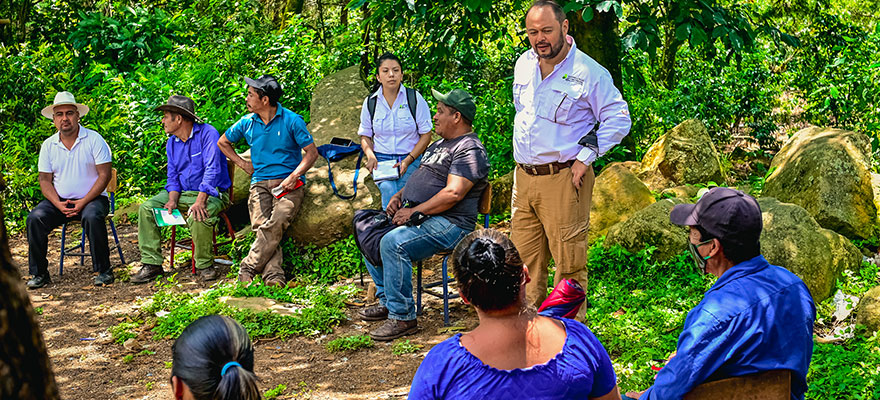
Malnutrition is an economic and social issue related to underdevelopment. It causes serious repercussions on children, society and the future of a nation. Guatemala is the country in the Latin America region with the highest rate of chronic malnutrition (46.5) and holds one of the top positions worldwide. It is estimated that one in two children suffers from this condition.
Malnutrition is a multi-causal issue, and as such, it must be addressed from several fronts. The nutritional status of a person is not only influenced by risk factors, such as lack of food, but also by biological, economic and environmental determinants.
These determinants require that, during the 1,000-day period in which it has been proven that the process of chronic malnutrition can be reversed, hard work should be done to guarantee Access and care to preventive health posts for pregnant women and children under the age of five; in strengthening the family economy, the access to drinking water, the household environmental sanitation, the promotion of mechanisms to increase access to food, as well as in communication campaigns for behavior change.
The project Guatemalans for Nutrition, created and executed by Castillo Hermanos, is an innovative, unique and comprehensive initiative that seeks to join efforts to reduce malnutrition in the country and favor the progress of Guatemala and its people.
This project aims to strengthen the primary health care model in the communities most affected by this scourge. It also seeks to work collaboratively to steadily reduce the prevalence of chronic malnutrition and eradicate infant mortality caused by acute malnutrition.
The program does not intend to be an assistance initiative, but to become a tool for training and strengthening community capacities. It is intended to introduce sustainable practices for maternal healthcare, nutrition, home improvements and, family and community economic growth.
Steadily reduce the prevalence of chronic malnutrition on children under the age of five and eradicate mortality from acute malnutrition in the intervened communities of Huehuetenango and Quiché.
Eliminate the causes that lead to malnutrition, transforming the biological, economic and environmental determinants that cause the phenomenon of malnutrition, through a comprehensive program of actions aimed in the following manner:
Castillo Hermanos has always had a commitment to the integral development of Guatemala and the region that has been demonstrated with concrete actions throughout its 136 years. A vision of development that is made up of several elements, the first of which is the promotion of economic opportunities and job creation, as well as a commitment to sustainability, social investment and business ethics.
That vision is dictated by the corporate social responsibility (CSR) that has been part of the DNA of this group, even before the concept was spread and popularly adopted.
Under the philosophy "We believe, trust and invest in Guatemala", Castillo Hermanos, through its social projection, Fundación Castillo Córdova, has supported different communities in the country with nutrition programs such as: the Nutritional Recovery Program and the School Food.
In its contribution to the fight against malnutrition, Castillo Hermanos has acquired the necessary technical knowledge to deal with malnutrition and has grown in experience to try to reduce this problem in the right way and, above all, has learned how to approach the affected communities. for this scourge in a respectful manner with their customs to spread the message of how to transform the sad reality of malnutrition.
This experience has also allowed Castillo Hermanos to recognize that, although there are many actors that continue to join efforts to deal with this problem, the malnutrition rates in the country do not show a downward trend. Due to the foregoing, the company concluded that malnutrition is a complex and multi-causal problem, which is not solved solely by providing food assistance to communities, but must be addressed from different fronts, such as, for example, the generation of employment, environmental care, strengthening of the primary health system, home improvements, among others.